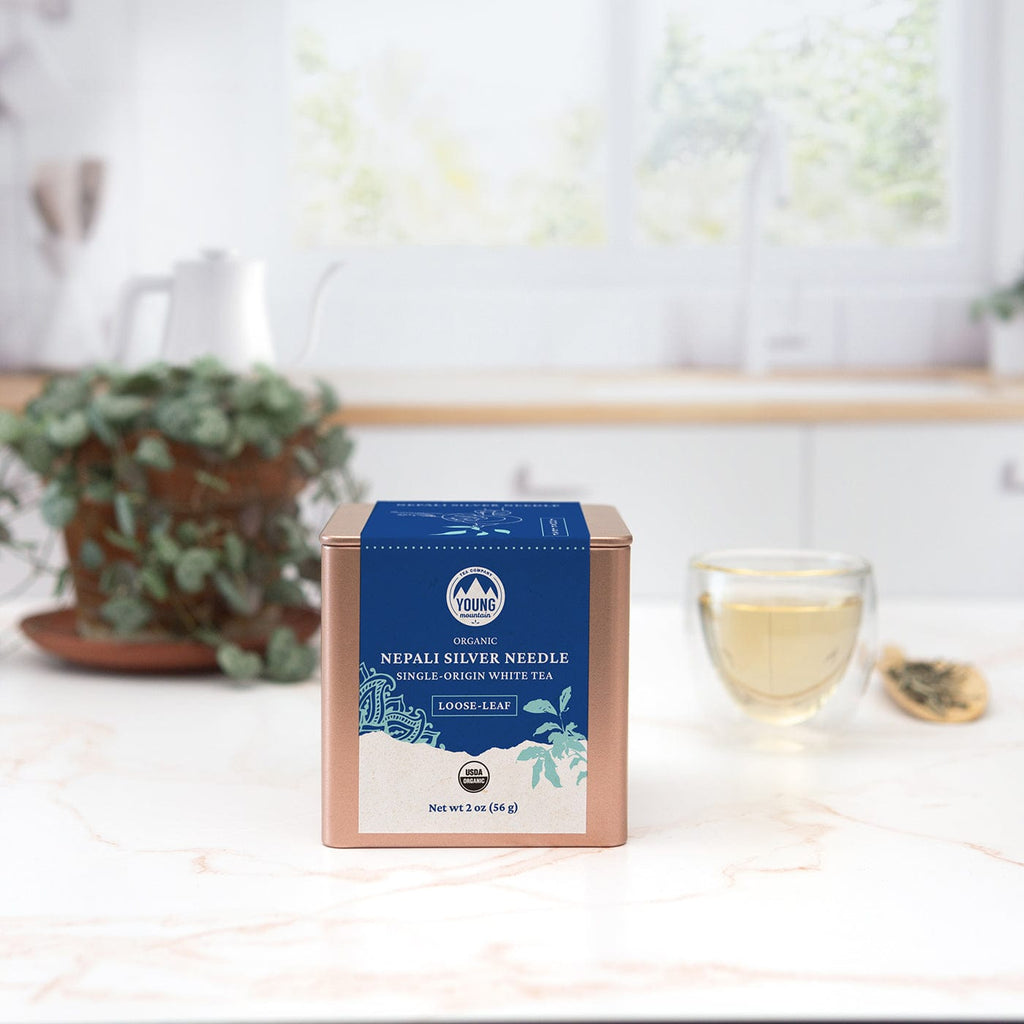
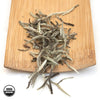
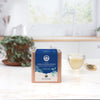
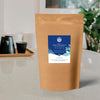
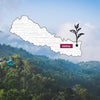
$43.99
Tasting Notes: Creamy caramel & blossoming lilac
Origin: Phidim, Eastern Nepali Himalayas
Producer: Kanchenjunga Tea Estate
Infusion Suggestions:
Steep 1 1 Tbsp /2.5 g | 8 oz | 180° F | 3 min
Steep 2 8 oz | 185° F | 4 min
Certifications: USDA Organic
Contains Caffeine
Organic Nepali Silver Needle is a light, smooth white tea with a lingering creamy caramel finish. Made by Nepal’s first certified organic tea garden, it is made with only the freshest, youngest buds of the tea plant.
Taste: This delicate tea expresses its most interesting qualities when steeped at a comparatively low temperature of180 F, about 3 minutes after the water has boiled. This gives this white tea enough space to sparkle with subtle notes of mint.. Enjoy a bright, floral beginning, evoking lilacs and roses in bloom. The graceful buds’ downy coating are slowly soaked by hot water as the tea steeps, creating a pleasantly heavy mouthfeel that finishes with notes of sweet cream and melted caramel. As with other bud-only teas, Organic Nepali Silver Needle should be steeped at least twice to unlock its full potential. Lovers of other high-quality silver needle teas are sure to enjoy this one!
Production: Silver needle teas are made using only the finest buds that are hand-plucked from select tea bushes. There are no tea leaves in this tea, just the unopened bud. The Nepali tea makers behind this tea are harvesting these buds from elite hybrids that have been bred specifically to have large buds that are perfect for this style of tea. In the tea gardens, this incredibly fragile new growth is meticulously harvested then carefully laid out to dry, allowing water to evaporate and leave behind nothing but the freshest compounds and flavors. Historically, these teas were made for Chinese royalty, but today, new demand for top-quality tea has inspired tea makers to craft this tea for “regular” tea aficionados worldwide.
Region: Nepal’s best-known tea growing regions are in the far eastern part of the country, bordering India and in the shadows of Mt. Everest. While tea has long been part of eastern Nepal’s past, it lacked the market access to establish its own identity. As a result, most Nepali tea has historically been sold as knock-off Darjeeling, given the two region’s nearly identical soils. The birth of an independent Nepali tea industry is being led by small-scale farmers whose families have moved fluidly throughout the region, long before Nepal and India were separate countries. As generations of community members traveled between eastern Nepal and northeastern India, many of Darjeeling’s Camellia sinensis saplings and secrets came with them. The emerging region is blending expertise with invention, and, in the process, paving a new model for tea in South Asia. expertise with invention, and in the process, paving a new model for small farmer tea in South Asia. Read our blog about this region here.
Tea Makers: Located in the lush forests near Nepal's eastern border is the Kanchenjunga Tea Estate – a tea garden named after the third highest peak in the world. The garden was established by Mr. Deepak Banskota, an icon in the Nepali tea movement. When he was an enterprising teenager, Banskota visited nearby Darjeeling and saw how tea making could created the opportunity for his village to advance. When he returned home, he enthusiastically convinced other local farmers to band together to grow tea. Over the years, hundreds of local farmers joined the effort.
Impact: Kanchenjunga is an innovator in Nepali tea. The estate’s official name is the Kanchenjunga Tea Estate and Research Center, and it was the first in Nepal to be certified organic. Today it operates as a cooperative that offers robust scholarship programs to members’ children. Additionally, the garden is pioneering new sustainable practices, including using renewable energy for drying its tea and intercropping native species to promote biodiversity. The Bansokta family is continually working to develop global supply chains that elevate the stature of Nepali tea worldwide.
Packaging: Our commitment to sustainability means we offer our teas in several types of packaging:
